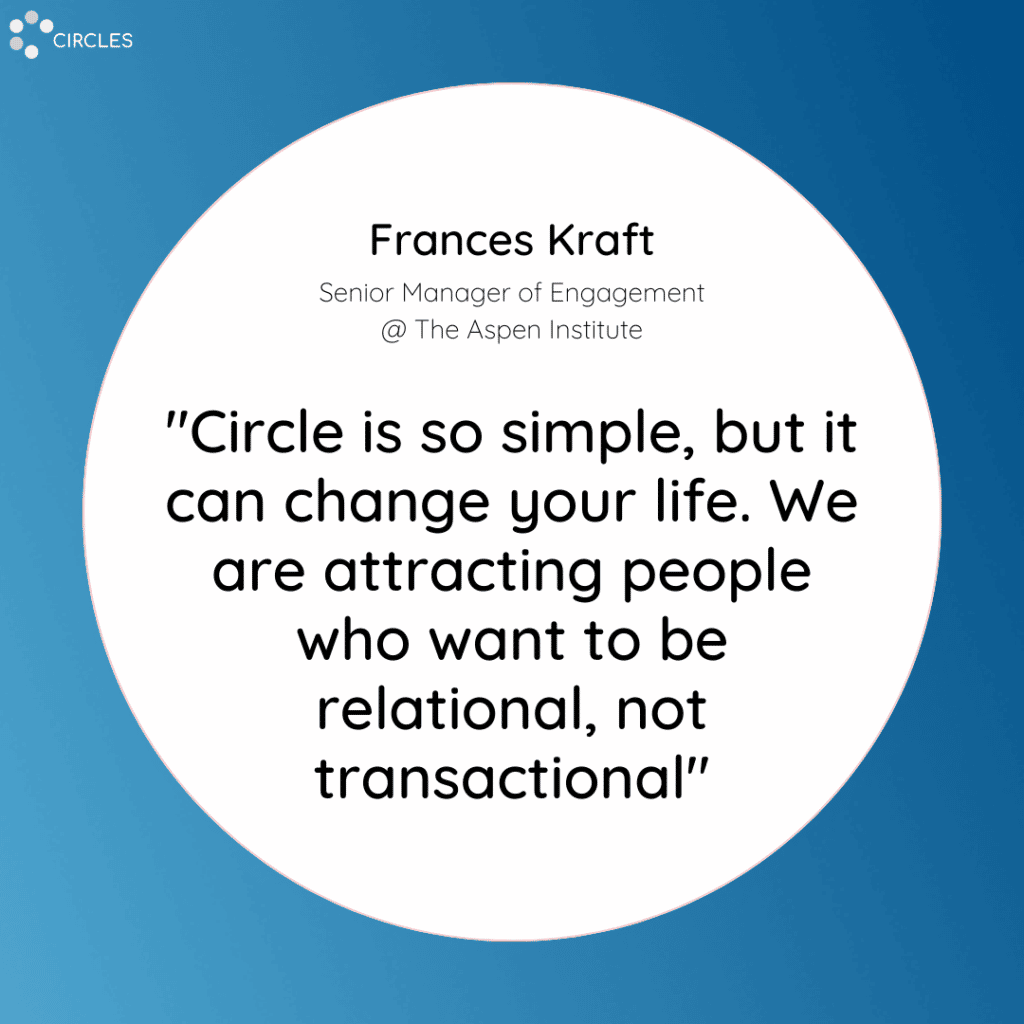My name means “listener” in Hebrew, and I like to think I’m good at it; in fact, I once confidently named a podcast I hosted Listener.
But occasionally my own husband hints that I’m not listening well, and I think I know what he means. Curious might describe me better than Listener –I’m interested enough to pay attention to someone for a while, especially if we just met. Then I get bored when my curiosity is satiated, which is likely what my husband experiences–did I mention we’ve been married 20 years?
My husband isn’t boring–in fact, our ability to converse at length is one of the reasons we married; more likely I’m an out-of-practice listener with the attention span of an Instagram reel.
The most effective listening doesn’t involve curiosity about someone, consuming the most interesting things about them and moving on. That’s self-centered. True listening takes a concentration of will, and a posture oriented entirely towards another person–a selfless act.
A History of Self-Centered Listening
It’s no wonder we often engage in self-centered listening. Consider these popular quotes:
“An appreciative listener is always stimulating” –Agatha Christie (Thanks for listening, I’m stimulated)
“Most of the successful people I know are the ones who do more listening than talking”– Bernard Baruch (I’m listening so I can become more successful)
“I like to listen. I have learned a great deal from listening carefully. Most people never listen.” –Ernest Hemingway (I’m listening to learn)
These quotes are examples of comprehensive, critical and appreciative listening. Listening as a way to entertain or better oneself isn’t wrong per se, but it isn’t focused on the person speaking, either. By contrast, empathetic listening means listening entirely for the speaker’s sake, and active listening falls under empathetic listening.

A Refresher on Empathetic Listening
Frances Kraft of The Aspen Institute’s Weave The People describes a Circl.es virtual small group she regularly attends as a place where people “Listen to understand, not to respond,” a classic Stephen Covey idea. The Circl.es experience honed their active listening skills: after initially gathering four times with a set of pre-made agendas, her group has continued meeting in Circl.es for over a year now, building up enough trust to really see each other and mirror back to one another who they are. Frances admits she doesn’t always feel like attending–they often meet in the evening after work, when energies wane. But she’s always glad she did, because it’s a forced slow-down, a chance to tend to one another. “Circle is so simple, but it can change your life. We are attracting people who want to be relational, not transactional.” When others feel listened to, they lean into being vulnerable and trusting others. From there, learning and growing become more possible.
So what does it take to develop into an others-centered, empathetic, active listener? To listen to someone for their sake–not mine? Let’s review a few key elements:
- Focus on the speaker instead of your own thoughts. Incredibly hard to do. I typically want to mentally run down the rabbit trail that opened up in my brain based on something interesting you said. It takes practice to constantly recenter one’s mind onto the speaker.
- Make eye contact and lean in. This is the first thing I try to do now when someone speaks to me: I stop unloading the dishwasher and look the teenager in the eye (or rather look at their phone, because they’re showing me another meme).
- Avoid distractions and multitasking. Speaking of teens, I’m amazed that mine rarely misplace their phones. I’m also dismayed, because I know the reason they don’t lose their phones is the same reason I never misplace mine–because I’m always gazing at it. Truly listening means putting down my newspaper phone.
- Set aside your points of view. In a culture of problem-solving achievers, this may be the most common barrier of all. Just because you think about it, read about it, are an expert in it or have your own story about it doesn’t mean you should share it. Read that sentence again.
Listening to Change Your Relationships, Workplace, World
In the end, by truly employing others-centered listening, you will reap benefits, in your relationships, workplace teams and society at large. It’s a practice in mutuality to become good listeners: everyone wins.
And I expect we could all use a good listener right now, several years into a pandemic in an increasingly polarized society. In the workplace–virtually or otherwise–listening proves paramount: one recent organizational psychology & behavior study confirms that “Listening is associated with, and a likely cause of desired organizational outcomes in numerous areas, including job performance, leadership, quality of relationships (e.g., trust), job knowledge, job attitudes, and well-being.” Online spaces that promote empathetic listening are the HR opportunity of the moment.
For many, work now includes a hybrid of a couple begrudging days in the office before retreating back to our home office wearing yesterday’s athleisure. That forced home office grind might explain how I forgot how to listen to my husband–we’ve worked from home together for two years straight and counting, which is a privilege, and also familiarity breeds contempt. With all the blurred lines between home/office, colleague/family member, it’s no wonder a listening tune-up is in order.
So next time someone stops by your cubicle (in my case, the child currently hovering behind my desk), practice empathetic listening by looking them in the eye. Focus on what they say and not your own thoughts. Resist the urge to check Twitter or Slack. Trust that small actions add up to large-scale transformation.
It just might change the world.
